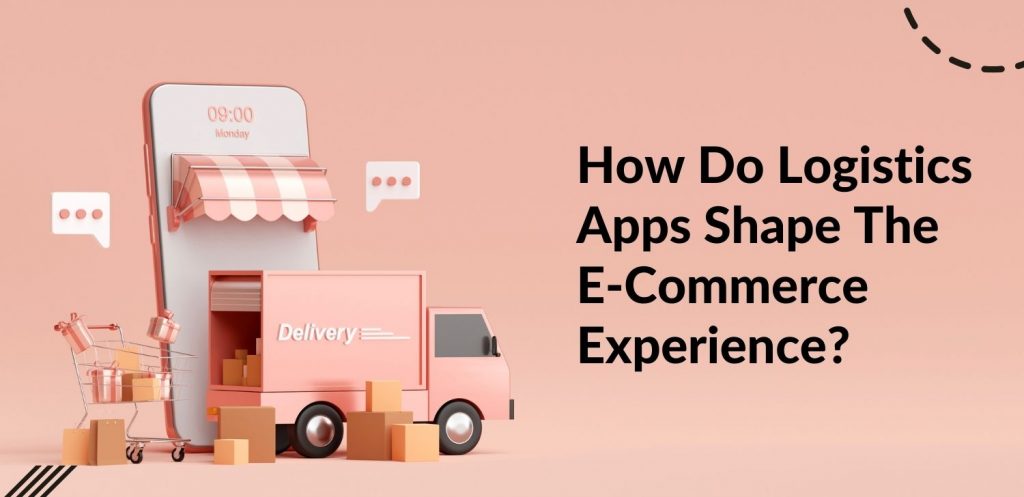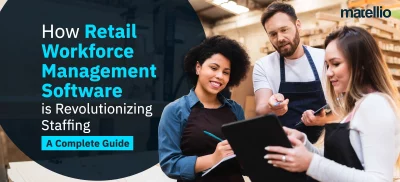
The evolution of technologies has certainly boosted the E-Commerce sector in the last few years. Enhancements in the logistics sector have significantly helped in changing the E-Commerce ecosystem. Previously, shops would simply source things from suppliers and manufacturers. There are now efficient eCommerce distribution hubs for circulating items. Warehousing, stock management, charging, bundling, naming, transportation, money down, installations, item return and exchange, and much more are all included in coordinated operations.
To smooth out the cycle, E-Commerce companies require specialists to complete efficient programming projects that address most concerns such as stock level executives, areas, bundling, and contentment. Companies that provide coordinated factors must also be familiar with the country’s business and transportation regulations.
In this blog, we will learn about the effect logistics has on the E-commerce industry with the benefits, market trends, and more.
What does Logistics mean for E-commerce?
To ensure a smooth distribution of goods, any e-commerce business needs a solid logistics system. Logistics tactics are a less visible aspect of eCommerce, but they are important. It includes warehousing, identifying, transporting, bundling, charging, trade and return, and assortment, among other processes. Planned activities also entail possessing a wealth of information on guidelines, streets, areas, and transportation regulations, among other things.
The primary goal of eCommerce’s coordinated operations is to deliver items safely, quickly, and on time. As eCommerce develops, the role of strategy will become increasingly important. Many online retailers will work with third-party logistics companies to provide delivery and customer service channels as needed.
This gives online businesses an advantage because customers value time more than unwavering quality. Let’s look at an example of a company’s warehousing requirements. When a customer completes their purchase on your website or app, the exchange will activate your stock programming, which will naturally change. Once you receive notification that the request has been approved, you should begin assembling the item’s shipping. Depending on the size of your online business, you can put together the package in a variety of methods.
Market Trends of Logistics App Development
As per the current global market situation, the logistics app development market is progressing immensely and is projected to cross the valuation of 12,975.64 billion USD by the year 2027. Along with the development in technologies, the market trends keep on changing. If you are planning to start your logistics mobile app development, it is mandatory to keep an eye on the current market trends in the said sector. Here are some of the current market trends in the logistics sector.
Integration of Blockchain Technology
Blockchain is an internet-based data storage system that organizes unique data into chains. Fresh chains are formed as new data is added to the data collection. Although various enterprises can use blockchain technology, probably the most well-known application is to keep deal transactions because the information can’t be removed or changed once it’s entered into a blockchain.
Blockchain is a secure solution for making paperless conveyance from having smart contracts available to incorporate them for your production network the board. More transportation and coordination factors organizations will most likely take advantage of blockchain’s security and convenience in 2022.
Adoption of Autonomous Vehicles
The growing interest in self-driving trucks and cars is due to the advancement of developing technologies, which could lead to more widespread applications in the coming year and beyond. Self-driving vehicles employ artificial intelligence (AI) frameworks for autonomous driving and cargo delivery, resulting in increased efficiency and lower costs.
Apps Based on AI
Artificial Intelligence is very useful in overseeing coordinated operations by analyzing data. Artificial intelligence has the potential to improve your operational processes by optimizing routes in the face of unexpected conditions or traffic patterns. Applying artificial intelligence (AI) to the massive amounts of data generated in the store network can help you investigate and detect patterns, get better experiences, and choose a better independent path. Artificial intelligence can also aid in the creation of a precise forecast of vehicle state, which can help administrators with fuel planning and maintenance.
Last-Mile Delivery
Along with growing e-commerce, urbanization means that last-mile transportation will become a major transportation and operations pattern. Surprisingly, last-mile transportation costs cover most of an organization’s total operating costs.
Integration of Cloud-Based Systems
In the coordinated factors sector, cloud-based frameworks are becoming increasingly well-known. Organizations can track down crucial advantages by embracing this innovation to improve their company processes. Simple flexibility increased dependability, and lower costs are some of the benefits of distributed computing. Other advantages include less equipment maintenance and increased security through data encryption.
Why Do E-Commerce Businesses Need a Logistics App?
E-commerce businesses get quite busy in the last three months of the year as the festival season kicks in, like Black Friday sales, Christmas holidays, and more. During that period or any other period per se, they need a strategic approach to deliver goods timely to the customers to retain their brand value and maintain the customer satisfaction rate. Apart from that, here are some of the reasons that make logistics apps beneficial for any e-commerce business.
Efficient Data Analysis
You’ll almost probably need to handle a greater number of data as interest in coordinated factors and inventory network administrations grows. The problem is that most businesses are unable to use this data for further analysis and improvement. Around 60% of organizations are unable to use such data decisively—an inventory network and logistics mobile application can assist in making intelligent decisions by capturing auto-generated data.
Improved Conversion Rate
People are enjoying their best lives now, in the era of next-generation technology, and they want everything to be completed in a matter of seconds. The use of portable applications allows for a faster purchasing experience. Experts agree that flexible applications have 1.5 times the conversion rate of work area sites.
Remove Dependency on Paper
The inventory management company used to have a complicated paper framework for each shipment. These materials served as the association’s backbone as well as its correspondence with clients. When it comes to tracking down the details of a previous shipment, it must be done through a lengthy process of physically checking through records and envelopes. This resulted in sluggish client service and, as a result, frequently late conveyances.
Strategically Organized Schedules
Coordinated schedule planning for logistics companies will provide numerous benefits to them and the progression of its development. When it comes to shipping goods, apps like Uber and Lyft use a lot of non-human computation to figure out if there are enough available vehicles in a certain area to accommodate your customers.
Enhanced Usability
Users require an application that, to some extent, operates on their terms. They expect everything to be in one location, and your app must provide that for higher conversions and brand value. It enables apps to quickly stack heavy movements or high-quality images, resulting in an eCommerce application setup that is up-to-date, current, and stunning.
Key Challenges of E-commerce Industry that a Logistics App can Solve
The e-commerce industry has to deal with a wide array of changes every day. Keeping up with the demand and supply number is quite a challenging task, and logistics app development has been a great helping hand in the same. If you are an e-commerce business and need to enhance your logistical approach, you have to develop a logistics app based on the emerging technologies for better efficiency. Here are some of the challenges that you have to deal with in the process.
Resource Management
The need for a faster, more astute, and coordinated labor framework to log all of the employees has grown critical as the logistics sector continues to grow. With the rise of companies like Amazon, the desire for faster and more efficient transportation methods within these enterprises has become a problem that many companies have begun to address.
Stock Tracking
Stock is the core part of logistics and e-commerce businesses; successfully comprehending and controlling a business’ stock is one of the primary transportation and coordination abilities. Suppose a business does not maintain categorized inventory. In that case, frequent penetration into available stock at a particular location can put a burden on sales and undermine customer loyalty.
Application UI
The connecting point of an application should be intuitive for each user from the moment they start using it, with little doubt. Regardless of how brilliant your application concept is, a perplexing application format and confusing approach provide a distraction and drive customers to seek out another solution. Simply put, a customer from your ideal interest group should be able to figure out where they are in the app with just a glance at the screen.
Warehouse Management
Managing a warehouse is quite a challenging task, but with the help of an efficient app, you can simplify the process. Expenses can mount if we don’t make the most of the area; therefore, it could be a simple cost-cutting and revenue-generating tool in and of itself if we make the most of it.
Getting the Right Tools
A great solution starts with an efficient methodical technique. You should examine your logistics mobile application item before choosing a logistics app development company or deciding on a budget. It’s mind-boggling to refresh through an application; the best value for your time and money is to first develop a suitable basic item. It will enable you to approve your idea ahead of schedule through thorough testing and get preliminary market feedback for upgrades.
Top Logistics Apps in E-commerce
Logistics app development has immensely progressed in recent years. If you are planning to develop a logistics app for your e-commerce business, you should explore e-Commerce development services and check out the competition for a better idea of the field. Here are some of the top logistics apps in the field of e-Commerce.
Hawk-Eye Trucking
Hawk-Eye Trucking is one of the most adaptive shipping applications that allow logistics businesses to spend less time on administrative tasks and more time on deriving intelligent decisions. It records GPS regions, making this app the simplest way to stay at ease, track GPS, and keep track of your truck routes. This app even has a visit function, so you can communicate with your armada via text and images. Sell Eye is available for both iOS and Android devices.
EazyStock
EazyStock is a cloud-based stock improvement tool that reduces the excess and obsolete stock levels in your warehouse, lowering costs and increasing access to your faster-turning, more productive items. Stock directors can automate the acquisition and recharge operations that were previously a mystery, cutting into overall profits, using easy API mixing with any Enterprise Resource Planning device. Extravagant KPI dashboards show you how your spending is stacking up month after month and drill down on areas where you may save money. The structure simplifies gauging and stock management.
Evernote
Evernote isn’t specifically designed for the stock administration, warehousing, and planned operations fields; yet, it’s the greatest tool for organizing important records, photos, and reports and is thus a well-known application among production network portable applications. The application also has voice recording functionality for capturing important notices while you are away from your computer or unable to devote time to writing notes. It’s a free tool to use, and it’s available on almost every platform. It’ll improve the organizer’s utility and make it easier to report to executives in a hurry.
Desk
The Desk App allows you and members of your team to track customer concerns while on the move, regardless of what is in your immediate vicinity. You’ll be able to better team up as well as track and react to instances. This will allow you to stay up with and build more solid client relationships. Both iOS and Android users can access the workspace.
OmniFocus
The app has released a specific task-management section that significantly enhances the overall workflow. This application permits your business to immeasurably work on its efficiency. This task-the-board application is particularly great for confounded ventures that need an unbending design, permitting you to follow activities to the end. This application is accessible on Mac, iPad, and iPhone.
How can Matellio Help You with Logistics App Development?
Logistics apps are considered an integral part of the E-commerce business, and developing one is not as hard as you may think. The global market conditions are in favor of the said sector. If you are planning to develop a logistics app for your business, you need a reliable development partner; that’s where Matellio comes into the picture.
We have been developing efficient apps for more than a decade, and with our experience, we have delivered apps with great ratings and reviews. With a high client retention rate, we are referred to as a transportation and logistics mobile apps development company. Our team of expert developers possesses a wide array of skills and stays updated with current market trends. We follow the agile development methodology to ensure the quality of our solutions. We offer a range of flexible engagement models that helps you keep your budget in check. Feel free to book a 30-min free consultation call with our experts, and let’s get started right away!








